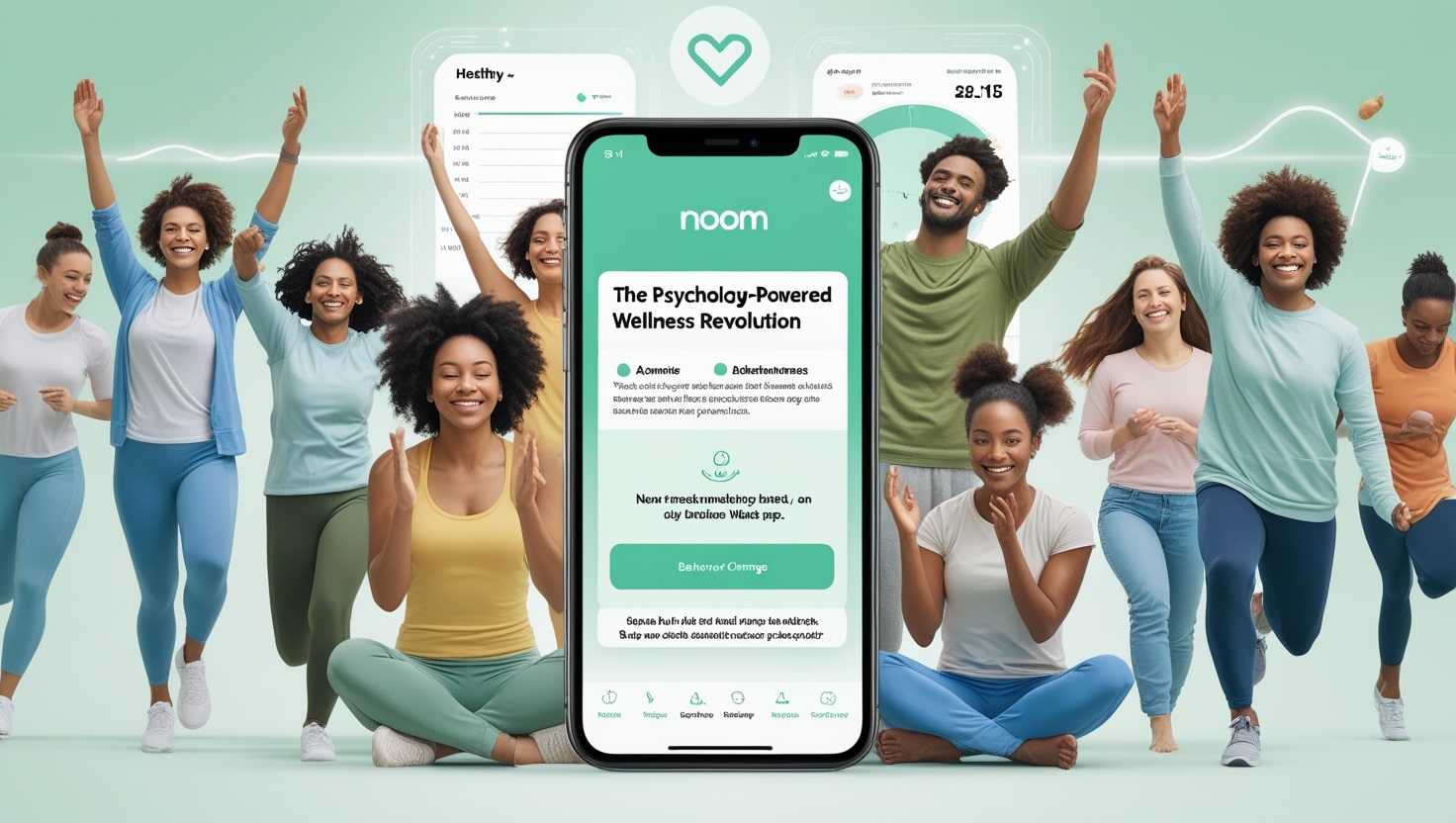Noom's Journey to Success: How a Psychology-Based Weight Loss App Disrupted the Health and Wellness Industry
In a world where fad diets come and go, and fitness trends rise and fall, Noom emerged as a revolutionary force in the health and wellness industry. Founded in 2008, this innovative startup set itself apart by blending technology with psychology to help people not just lose weight, but change their behavior for life. Today, Noom stands as one of the most successful digital health platforms globally, serving millions of users in over 100 countries.
This is the story of how Noom transformed from a small startup with a big idea into a wellness giant reshaping how we think about weight loss and healthy living.
The Founding Story
Noom was co-founded in 2008 by two entrepreneurs: Saeju Jeong, a South Korean native and serial entrepreneur, and Artem Petakov, a Ukrainian-American software engineer and former Google employee.
The duo shared a common vision: to leverage technology to solve some of the world’s most pressing health challenges. Saeju was inspired by his father, a doctor in South Korea, who believed in preventive medicine. Petakov, with a background in computer science and user interface design, was passionate about building tools that could make a real difference in people's lives.
Initially, Noom launched as a simple fitness tracking app, aiming to help users count calories and log workouts. But as the founders dug deeper into user behavior, they realized something profound: most people knew what to do to lose weight, but struggled to do it consistently. The root cause wasn’t lack of knowledge — it was psychological barriers and behavioral patterns.
Pivot to Psychology-Based Weight Loss
Around 2012, Noom pivoted to become a psychology-based weight loss platform, grounded in Cognitive Behavioral Therapy (CBT) principles. This marked a turning point in the company’s journey.
Instead of just telling users what to eat or how to exercise, Noom began focusing on why users made certain choices. The app included daily lessons, coaching, quizzes, and habit-tracking tools designed to retrain the brain and build healthier habits over time.
This unique approach resonated with users tired of restrictive diets and unrealistic weight-loss promises. By addressing the emotional and psychological side of health, Noom started gaining serious traction.
Key Features That Made Noom Stand Out
Daily Behavior Coaching: Noom users are assigned personal health coaches who provide encouragement and accountability.
Science-Backed Lessons: Short, daily lessons rooted in psychology and nutrition science help users understand their habits and triggers.
Group Support: Users are placed in peer groups for motivation, empathy, and community support.
Calorie and Meal Logging: A smart food database allows users to track meals with color-coded feedback (green, yellow, red foods).
Progress Tracking: Visual dashboards help users monitor weight, activity, and behavioral progress.
Growth and Recognition
From 2016 onward, Noom's growth skyrocketed. Here's how it unfolded:
2017-2019: Noom heavily invested in marketing and user acquisition, targeting busy professionals and those struggling with chronic weight issues.
2019: The company surpassed $200 million in revenue.
2020: Amid the COVID-19 pandemic, demand for digital health tools surged. Noom’s user base exploded, with millions joining to focus on wellness during lockdowns.
2021: Noom announced it had surpassed $400 million in annual revenue and was planning a broader expansion into areas like mental health, diabetes prevention, and sleep.
By 2022, the app had been downloaded over 50 million times and was consistently ranked among the top health apps in the App Store and Google Play.
Business Model
Noom operates on a subscription-based model. Users typically start with a free trial and are then offered monthly, quarterly, or yearly plans, depending on their goals.
The pricing ranges from $59/month to $199/year, with custom coaching and content included. This model ensures recurring revenue and long-term user engagement.
In addition, Noom has begun forming partnerships with healthcare providers and insurance companies to bring its behavior change programs to more people at scale.
Scientific Backing and Clinical Trials
One of Noom’s biggest strengths is its commitment to science. The platform has published peer-reviewed studiesshowcasing its effectiveness in sustained weight loss and behavior change.
For example:
A 2016 study published in Scientific Reports found that 77.9% of Noom users reported weight loss.
Ongoing clinical trials are evaluating Noom’s effectiveness in diabetes prevention, stress management, and hypertension.
This focus on evidence-based design has helped Noom gain credibility not just with consumers, but with medical professionals.
Challenges Faced
Despite its success, Noom has faced some criticism and challenges:
Price Point: Some users feel Noom’s pricing is high compared to other fitness apps.
Cultural Fit: While Noom works well in Western contexts, its tone and content can feel less relatable in other cultures.
Coaching Quality: Although most users appreciate the personal coaching, the experience can vary depending on the assigned coach.
To address these, Noom has been refining its content, training coaches more rigorously, and exploring market localization strategies.
Expansion Beyond Weight Loss
Understanding that behavior change is at the core of many health challenges, Noom began expanding into adjacent areas:
Noom Mood: A mental wellness program designed to reduce stress and improve emotional health.
Diabetes Prevention Program (DPP): Targeted at users at risk of Type 2 diabetes.
Sleep & Nutrition: Pilot programs are exploring deeper involvement in sleep health and personalized nutrition.
This strategic diversification positions Noom as a full-spectrum digital health platform, not just a weight loss app.
Vision for the Future
Noom’s mission is ambitious: to help people everywhere live healthier lives through behavior change. To that end, the company is:
Investing in AI and machine learning to personalize user experiences further.
Expanding its global footprint with localized versions of the app.
Exploring partnerships with employers, insurance firms, and health systems.
Preparing for an eventual IPO, as rumors suggest Noom may go public in the near future.
The founders continue to emphasize that the real goal isn’t weight loss, but lasting lifestyle transformation—a mission that resonates in a world struggling with chronic diseases and mental health issues.
Conclusion
Noom’s success story is a powerful example of how technology, when combined with psychology and compassion, can create lasting impact. By shifting the focus from crash diets to behavioral change, Noom has carved out a unique space in the crowded health app market.
From humble beginnings in 2008 to a billion-dollar brand empowering millions, Noom's journey reminds us that the most profound transformations start from within. And with its eyes set on the future of digital health, Noom is just getting started.
- 06 June 2025



